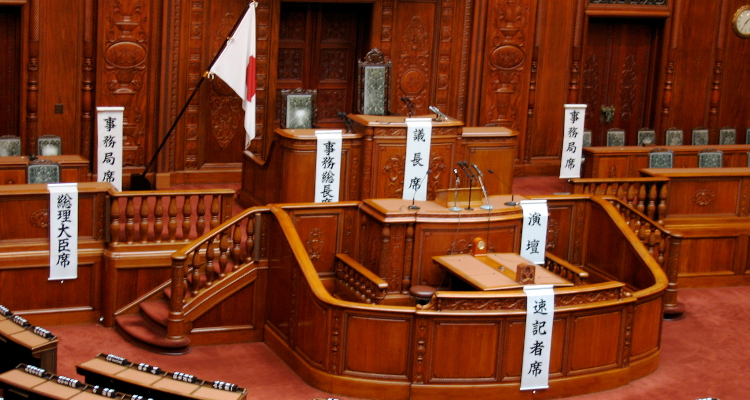Proposed legislation that would legalize casino gaming in Japan is reportedly not likely to pass through the current session of the Asian nation’s parliament this year due to time constraints and the effects of the Presidential election in the United States.
According to a report from Asia Gaming Brief citing a briefing from financial services firm Morgan Stanley, the Bill For The Promotion Of Integrated Resort Facilities, which is better known as the “Casino Bill”, is not expected to be ratified by the end of the month and is almost certainly due to be delayed until at least early next year.
Representatives from Morgan Stanley reportedly met with members of Japan’s House Of Representatives recently to access the likelihood that the “Casino Bill” would be ratified this year but revealed that it now expects parliament to postpone even hearing the legislation until at least its first session of 2017.
“First, the current session, which ends at end-November, does not leave much time for it to pass in both houses,” read the briefing from Morgan Stanley. “Second, after [the majority Liberal Democratic Party] pushed through the Trans-Pacific Partnership without consensus, it is unlikely to do this with the [“Casino Bill”]. Finally, uncertainty following the United States Presidential election could divert attention away from the [“Casino Bill”].”
The New York-based multi-national reportedly explained that this “momentum loss” could even extend the timeline for the legislation’s passage by another two to three years with lawmakers now hoping to have a casino open just after the 2020 Summer Olympics in Tokyo in order to “support the economic activities and visitation”.
Regarding the legislation itself, Morgan Stanley reportedly declared that it is unlikely to include a casino revenue tax similar to that seen in Macau and Singapore but will more than likely require operators to make contributions to the cultural, public interest and education sectors with an entry fee applicable for Japanese nationals.
“Japan has a lower visitors-to-population ratio compared to most gaming destinations, thus it is important for integrated resorts to appeal to locals,” read the brief from Morgan Stanley. “On the bright side, we think the Japanese market has higher transparency, higher population of high net worth individuals and higher volume of Chinese visitors, just behind Macau, Hong Kong and South Korea. It has a proven and consistent size of its leisure and entertainment market and developed infrastructure.”



